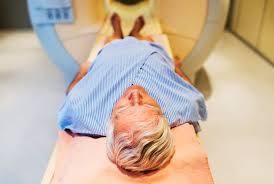Study Outlines Potential Global Benefits Of Radiation Therapy

A recent study has shown how maximizing patient access to radiation therapy could help save the lives of hundreds of thousands of cancer patients in Australia and across the world every year.
The study, entitled ‘The Population Benefit of Evidence-Based Radiotherapy: Five-Year Local Control and Overall Survival Benefits’ investigated the benefits of radiation therapy to Australian cancer patients and how these findings could be applied on a global scale.
It found that, based on an estimation of benefits to the population of cancer patients as a whole, radiation therapy treatment used according to guidelines for all patients who need it can benefit about 13,600 more Australians with local control for their cancer and boost overall five-year survival rates for 3,500 patients, with the vast majority of benefit coming from standalone radiation therapy treatment.
Professor Michael Barton OAM, one of the co-authors of the study, said that if the study’s population benefits model was applied globally using evidence-based guidelines, it could underline the importance of radiation therapy as a cancer treatment.
“If everyone had access to radiation therapy (around the world), it would save a million lives (every year),” he said.
“We have clear evidence of the benefits of radiation therapy. (This study) gives us an insight into contribution of radiation therapy cancer care and shows us potentially where we could do more to improve access (to treatment).”
The study evaluated the effects of radiation therapy, together with the additional benefit of concurrent chemotherapy with radiation therapy, on patients with different types of cancer over a five-year period.
As well as showing which cancers respond better to a particular treatment, data collected would be used in various positive ways, including ‘informing health policy, quality improvement and for performing economic analyses of radiotherapy’.
The study, which ‘describes a robust, transparent and adaptable means for using publicly available data sources to estimate radiotherapy population benefits’, calculated the number of patients benefiting from radiation therapy by multiplying the population cancer incidence by the absolute proportional radiotherapy benefit.
It showed that radiation therapy benefit was greatest for head and neck and cervical cancer in terms of local control and survival rates.
Chemoradiotherapy benefit – combining the two treatments – had maximum benefits for rectum, cervical and brain cancer patients.
Professor Barton, who is Professor of Radiation Oncology at the University of NSW and research director of the Collaboration for Cancer Outcomes Research and Evaluation at the Ingham Institute for Applied Medical Research at Liverpool Hospital in Sydney’s south-west, said the ‘unique’ study and its population benefits model could have great benefits for patients and modern healthcare.
“No-one has tried to quantify the benefits of treatment at a population level before,” he said. “This research is important because it gives us an insight into the contribution of radiation therapy in cancer care.
“It also shows us where there are gaps in the provision of treatment and where we can put more resources into improving healthcare services.
“It also shows that if you make investments in lower and middle-income countries where it is needed, you will get results.”

Targeting Cancer is a vital resource for anyone wanting to discover more about the benefits of radiation therapy.
Professor Barton, who is also the principal of the Cancer Research Theme of the Faculty of Medicine UNSW, said the study underlined the importance of sites such as Targeting Cancer in providing informed treatment decisions for cancer patients.
“I think patients are ‘lucky’ in the sense that we have got these information systems in place now for them to at least discover more about potential treatments,” Professor Barton said.
“Targeting Cancer has been a strong advocacy group for radiation therapy and it is important to continue that effort.”
Click here to view the study (courtesy The Green Journal).
For more on the benefits of radiation therapy, click here.




